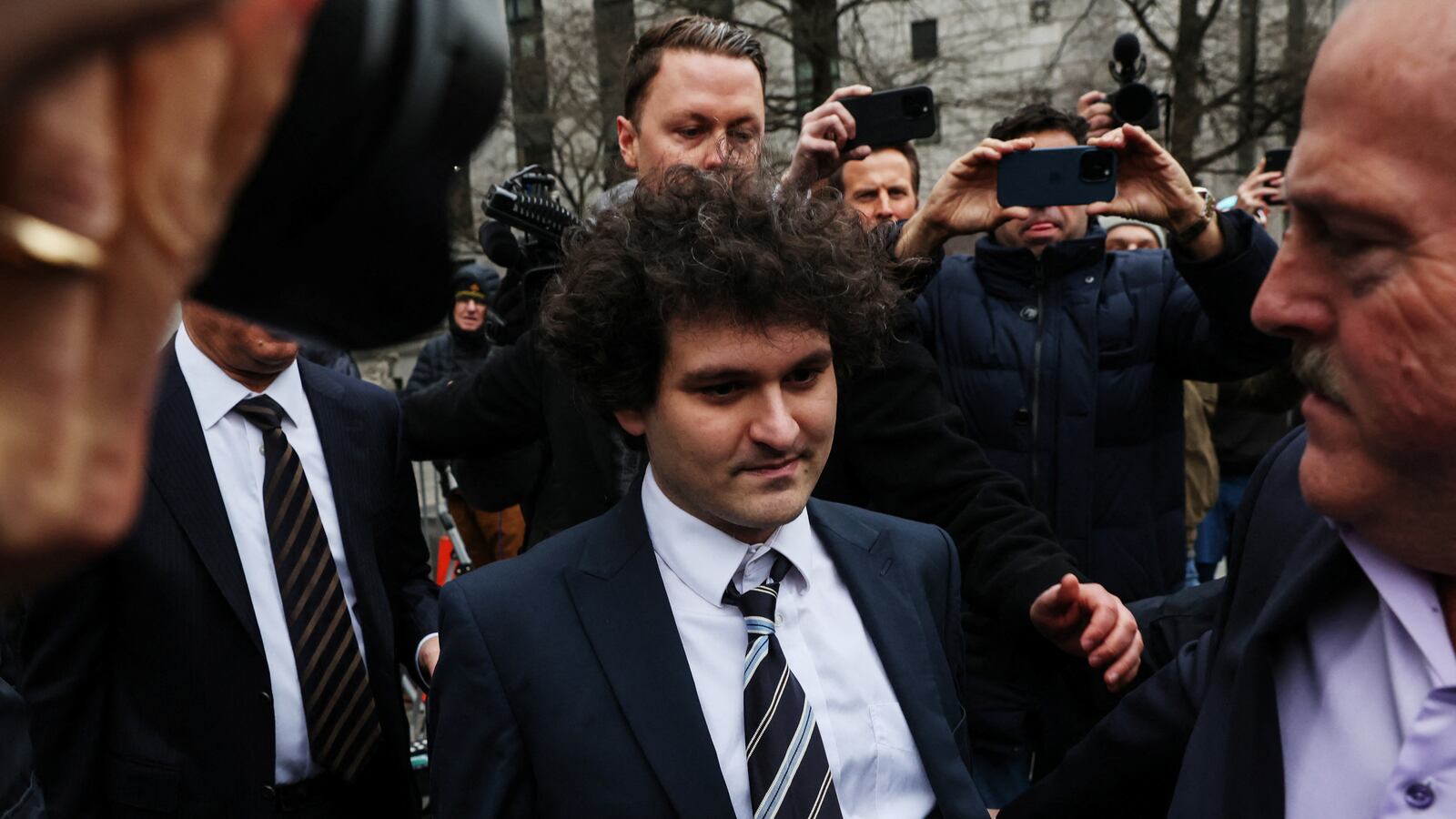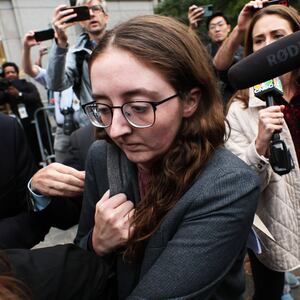Before Sam Bankman-Fried was indicted on fraud charges, he positioned himself as a global change agent, pouring billions of dollars into pandemic research, political campaigns, and cutting-edge technology firms.
Now, after three weeks of brutal testimony—in which three of his former executives threw him under the bus—he is once again styling himself as savior. Only this time, he’s trying to save himself.
On Wednesday, the former crypto billionaire’s attorneys announced that he will testify in his defense, perhaps as soon as Thursday. Several legal experts told The Daily Beast the idea is a massive gamble that could potentially seal his fate and send him to prison for the rest of his life.
“It’s very risky. The entire case will now come down to his testimony. If the jury thinks he’s lying, he’s done,” said Neama Rahmani, a former federal prosecutor now working as a trial lawyer in Los Angeles.
Rahmani added that he is not surprised by Bankman-Fried’s decision, since he was outspoken on social media while he was being investigated last year, “probably in spite of his lawyers’ advice.”
“Why would anything change now, especially with his life on the line?” he said, particularly since the “defense is really losing badly so far.”
Robert Mintz, a white-collar defense attorney in New Jersey, said that a defendant’s decision to testify “is often viewed as somewhat of a Hail Mary defense strategy.”
If the defense believes they’re going to lose without a “game-changing moment,” he said, they may be more inclined to take on the risk, “perhaps to change the mind of even one juror, because that’s really all they need in order to at least get a hung jury and avoid a conviction.”
Mintz said that defendants are often tempted to tell their side directly to jurors, particularly if they see themselves as persuasive public speakers. Bankman-Fried would certainly fit that bill.
But that impulse is typically not advisable, he continued. “It gives prosecutors the opportunity to essentially retry their entire case,” he said. “Experience [shows] that it’s very difficult for defendants to pull off.”
Bankman-Fried—who built an estimated $28 billion fortune operating crypto exchange FTX and a crypto trading firm, Alameda Research—signaled in recent days that he might take the stand. His lawyers told the court that he hadn’t been receiving enough Adderall to help him focus throughout the day, saying he would need the meds even more urgently if he chose to testify. (He was given extended-release pills.)
Bankman-Fried will face an difficult battle trying to convince the jury of his innocence. Multiple defendants have testified that he knew Alameda Research was improperly siphoning billions of dollars in customer assets to pay off debts and fund investments, challenging his claim that he was ignorant to the alleged misconduct.
Caroline Ellison, the former CEO of Alameda (and Bankman-Fried’s ex-girlfriend), said that he “directed” her to commit crimes, including wire fraud and conspiracy to commit money laundering. “He was the one who set up these systems,” she added, referring to the decision to pilfer customer deposits.
Nishad Singh, who served as head of engineering at FTX, admitted in separate testimony that he and other executives engaged in “heinously criminal” activity. “The scale of wrongdoing was enormous,” he said.
Both Singh and Ellison pleaded guilty and agreed to cooperate with prosecutors. Bankman-Fried pleaded not guilty to all charges.
According to Rahmani, more high-profile defendants have been choosing to testify in their cases, including Theranos founder Elizabeth Holmes and convicted murderer Alex Murdaugh—both of whom lost their cases.
Bankman-Fried “couldn’t stop talking to [the] press and wider world after FTX collapsed and before he was arrested and then while out on bail,” echoed Brian Klein, a trial attorney and former federal prosecutor. “So no one should be surprised that he is choosing to take the stand. But this is just rearranging the deck chairs on the Titanic.”








